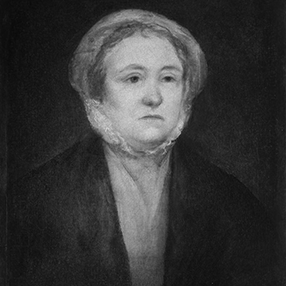Unfortunately drowned in the River Avon, near Bath, October 15, 1743
Why dash the floods! What cries my soul affright!
How steep the precipice! How dark the night!
Then Virtue sunk in Avon’s fatal wave,
No friend to succour, no kind hand to save;
The circling waters hide his sinking head,
The treach’rous bottom forms his oozy bed.
Behold the bloated corpse, the visage pale;
See here what virtue, wealth, and birth avail.
What now remains beneath this load of pain?
To weep is nature, but to weep is vain.
What now remains? It yet remains to try
What hope, what peace, religion can supply:
It yet remains to catch the parting ray,
To note his worth ere mem’ry fade away,
To mark how various excellence combin’d,
Recount his virtues, and transcribe his mind.
It yet remains with holy rites to lay,
The breathless reliques in their kindred day.
Ye wise, ye good, the holy rites attend,
Here lies the wise man’s guide, the good man’s friend.
Awhile let faith exalt th’ adoring eye,
And meditation deep suspend the sigh;
Then close the grave, and sound the fun’ral knell,
Each drop a tear, and take a last farewell;
In peace retire, and wish to live as well.
This poem is in the public domain. Published in Poem-a-Day on July 22, 2023, by the Academy of American Poets.
“Although Anna Williams wrote other beautiful elegies, there is something else going on with ‘On the Death of Sir Erasmus Philips.’ It is not just how the subject of death can offer disabled poets a temporary respite from grappling with the ableist gaze by redirecting it toward a fresh corpse. It is also not quite that this poem plunges us into another world, to a watery grave and its environment, though Williams does engage with otherworldly landscapes elsewhere, such as in a poem called ‘The Valley of the Moon.’ It is, instead, the ecstasy of having passed through a great change, in her case becoming blind a couple of years earlier and being in the process of discovery. Note that the poem says ‘It yet remains’ three times. If much remains, even in the face of death, then how much more remains with mere blindness? By the way, it was recorded that new acquaintances of Williams’s were ‘always surprised’ by how she ‘could assist herself with so much ease and readiness, that she required little attendance.’”
—John Lee Clark

